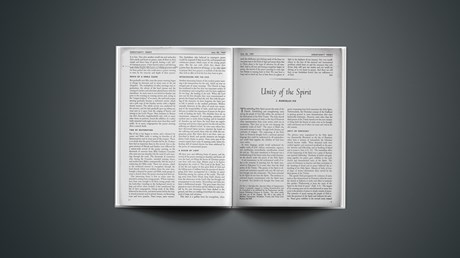
The indwelling Holy Spirit secures the unity of the Church. Establishing and strengthening unity among the people of God falls within the province of the third person of the Holy Trinity. The early church experienced an earnest of unity on the day of Pentecost when representatives from every nation cried out in amazement, “How hear we in our own language the wonderful works of God?” The tower of Babel—the man-made attempt at unity—brought forth division and confusion of tongues. The outpouring of the Holy Spirit on Pentecost brought forth a universal spiritual language that could be understood by all nationalities and would bind together the children of God from every nation.
In every language, people would understand the mighty works of God: calvary, resurrection, regeneration, justification, reconciliation, sanctification, eternal life and joy. The unity introduced at Pentecost was a foreshadowing of the future unity that would characterize the church under the power of the Holy Spirit.
A sad commentary on the ecclesiastical world of today is the necessity of asserting that the Spirit mentioned in Ephesians 4:3 is none other than the third person of the Trinity. The person of the Spirit is obscured and sometimes equated with new life and new love brought into the community. The fruits activated by the Spirit do not form the Spirit. The tendency to confound human consciousness with the Spirit must be resisted. Nor should it be thought that virtue and power emanating from God constitutes the Holy Spirit. Unfortunately, the Unitarian concept of the Godhead is gaining ground in some denominations that were historically trinitarian. However, none other than the third person of the Trinity broods over the new creation to bring ...
from Christianity Today Magazine https://ift.tt/3hevh0s
No comments:
Post a Comment